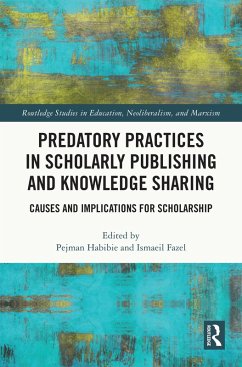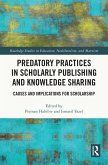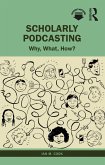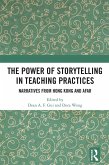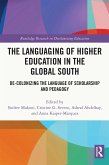Chapters engage multiple methodologies, including corpus, discourse, and genre analysis, as well as historical and autoethnographic approaches to offer in-depth, empirical analyses of the causes, practices, and implications of predatory practices for scholars. Contributors span a broad range of disciplines and geolocations, presenting a diverse range of perspectives. The volume also outlines effective initiatives for the identification of predatory practices and considers steps to increase understanding of viable publishing options.
Providing a needed exploration of predatory research practices, this book will appeal to scholars and researchers with interests in higher education, publishing, and communication ethics.
Dieser Download kann aus rechtlichen Gründen nur mit Rechnungsadresse in A, B, BG, CY, CZ, D, DK, EW, E, FIN, F, GR, HR, H, IRL, I, LT, L, LR, M, NL, PL, P, R, S, SLO, SK ausgeliefert werden.
"This timely collection explores one of the most bewildering and pressing topics of contemporary academia: predatory publishing. Competently led by Habibie and Fazel, contributors shed light on this duplicitous practice, while offering practical tips on how to recognize and avoid it. With novice and marginalized scholars particularly at risk of falling prey to exploitation, the book's attention to the wider context of metrics-driven research evaluation regimes makes this essential reading for all academics." - Anna Kristina Hultgren, Professor of Sociolinguistics and Applied Linguistics and UKRI Future Leaders Fellow, The Open University, UK

